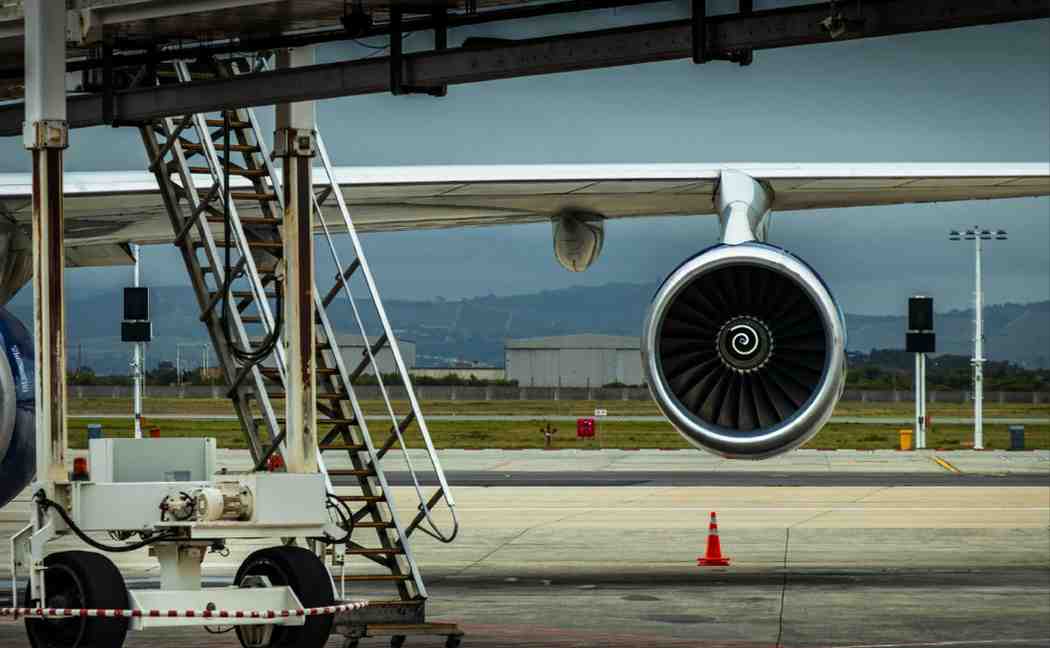From Frankfurt to Werlte: Germany Leading the Way in Sustainable Aviation Fuel Production

Germany is establishing itself as a global leader in the integration of e-fuels within the aviation sector, driven by a blend of technological innovation, strategic investments, and strong policy support. These advancements are facilitating the decarbonization of aviation while positioning Germany at the forefront of sustainable aviation fuel (SAF) production.
Germany E-fuel market is estimated to record a sale of 281 million liters by 2027 with the volume anticipated to reach 804 million liters by 2034 with a CAGR of 30.5% during the forecast period.
Technological Advancements and Pilot Projects
Germany's dedication to sustainable aviation is exemplified by its endorsement of innovative initiatives, such as the e-kerosene plant in Werlte, developed by Atmosfair with support from Lufthansa. This facility, which began operations in 2021, represents a pivotal moment as the world's first commercial-scale e-kerosene production plant. It utilizes renewable electricity and captured CO? to manufacture synthetic jet fuel, thus demonstrating the viability of e-fuel technology in aviation.
Additionally, the ERA ONE plant developed by INERATEC GmbH in Frankfurt aims to convert up to 8,000 metric tons of CO? annually into climate-friendly e-fuels, including aviation-grade fuels. This project emphasizes Germany's commitment to scaling e-fuel production and incorporating it into the aviation industry.
Strategic Investments and Industry Collaboration
Both the German government and the private sector are making substantial investments to expedite the adoption of SAF. In 2024, the European Investment Bank (EIB) and Breakthrough Energy Catalyst provided a €70 million funding package to INERATEC to bolster its e-fuel production plant in Frankfurt and support further research and development. This financial backing underscores the significance of public-private partnerships in advancing sustainable aviation technologies.
Industry collaboration also plays a crucial role in Germany's strategy. The Aviation Initiative for Renewable Energy in Germany (aireg) has broadened its membership to encompass companies such as eFuel GmbH, HCS Group, and HH2E AG. These partnerships promote knowledge exchange and collaborative efforts in developing and scaling SAF technologies.
Policy Support and Regulatory Framework
Germany's policy environment is favorable for the growth of the e-fuel aviation sector. The European Union's "Fit for 55" package includes mandates aimed at increasing the use of SAF, with a target of 70% of aviation fuel being sustainable by 2050. This regulatory framework provides a clear market signal, stimulating investment in SAF production and related infrastructure.
Moreover, national policies in Germany support the advancement of e-fuel technologies through subsidies and incentives for research and infrastructure development. These initiatives are designed to lower the carbon footprint of aviation and foster the transition to sustainable energy sources.
Challenges and Future Outlook
Despite advancements in the sector, several challenges persist in scaling up e-fuel production for aviation. As of 2024, SAF production accounted for only 0.53% of global jet fuel usage, highlighting the need for substantial expansion to meet future mandates. The high production costs of SAF, currently estimated to be three to five times greater than traditional jet fuel, present economic hurdles. Furthermore, the necessary infrastructure for SAF production and distribution remains in its early stages of development.
Looking to the future, continued investment in research and development, combined with supportive policies and industry collaboration, is expected to drive the progression of the e-fuel aviation sector in Germany. The country's initiatives to incorporate e-fuels into aviation not only contribute to its climate objectives but also serve as a benchmark for other nations striving to decarbonize their aviation industries.
In conclusion, Germany's distinctive trends in the aviation sector, characterized by technological innovation, strategic investments, and supportive policies, are paving the way for a sustainable and decarbonized future in aviation. While challenges remain, Germany's proactive approach positions it as a leader in the global transition to sustainable aviation fuels.